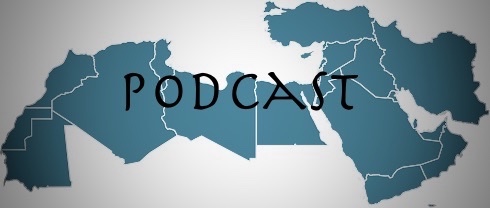The killing of the 21 Copts draws attention to the fact that ISIS in Libya has become as dangerous, if not more dangerous, than ISIS in Iraq and Syria. In fact, it may be fair to say that ISIS which has retreated in Kobane and in northern and central Iraq, is expanding in Libya, so much so that it is now in control of three Wilayahs [self-styled Islamic provinces] there.
Editorial by al-Quds al-Arabi
(translated by MidEast Mirror Ltd)
The decision to go to war was not easy; it was heavily weighted down by challenges and threats that cannot be denied. But it was an inevitable decision. In fact, the mere fact that it was taken reflects the extent of the popular pressure to which the Egyptian National Defense Council was subjected after the Egyptian people were shocked by the indescribably ugly video showing the slaughter.
It is true that no demonstrations took to the streets; but the anger was boiling over in people’s hearts. Egypt just could not go to sleep, so much so that President ‘Abdelfattah as-Sissi was forced to bring forward the timing of his speech and deliver it on the midnight of the massacre, instead of delivering on [Monday] night as originally planned.
In order to save their lives, the logic of security required that the one-million Egyptians who are working in Libya should be evacuated before launching a military response. But the regime realized that that would be too late to save its credibility. Moreover, popular anger would not have given the regime any more time to begin with, especially after the tense climate created by the terrorist attacks that have claimed tens of Egyptian victims over the past two weeks. The regime thus realized that it cannot brook appearing as treating the Copts as second-class citizens; and it took the decision to launch its attack.
Cairo understands the scale of the threat stemming from opening a new front and entering an open war with terrorist groups on the other side of the [Libyan] borders that stretch for some two thousand kms. Therefore, it would have preferred to act as part of an international effort that acts under cover from the UN Security Council in order to prevent Libya from being transformed into a paradise for terrorist groups. But the massacre imposed its own pace and facts and on the Egyptian domestic scene, indeed, at the regional and international levels as well. These include the following:
- First from the perspective of the complex domestic scene, the massacre has revived a familiar historical legacy, one whose main title is ‘No sound can be louder than the sound of battle’ [the mobilizing slogan that was launched after the 1967 defeat at Israel’s hands]. This provides a ‘safety net’ for a regime that, until two days ago and for various reasons, was being subjected to harsh criticisms even from some of its closest supporters. But the decision to respond to the massacre has rallied the Egyptians around it. The regime will thus now hope that the [domestic] pressures it has been subjected to will begin to recede. These begin with criticisms of its violations of human rights, but do not end with various crises such as price rises and energy shortages. Nor did some of the regime’s media tools refrain from attempting to exploit the massacre politically as far as possible. This emerged yesterday in claims that those who perpetrated the massacre were Brotherhood members and not ISIS.
- Second, and at international level, Egyptian Foreign Secretary Sameh Shuokry rushed to demand comprehensive international support for Egypt’s war against terrorism. This may take the shape of a new Security Council resolution against ISIS, one that will benefit from Russian/Chinese backing this time round, whereas these two powers have blocked any international resolution regarding ISIS in Iraq and Syria. In fact, it seems that there is the nucleus of an Egyptian alliance with France and Italy that may have already begun to push in this direction.
The ‘slaughter-video’ facilitated this task when it also issued an open threat to [occupy] ‘Rome and the nation of the Cross.’ Moreover, the crime was deliberately committed on the shore facing Europe, where terrorist attacks have become almost daily incidents. If Egypt’s efforts succeed, the EU may find no alternative but to lead this new war, which would represent a further marginalization of U.S. influence.
- Third, and at the regional level, for Egypt to officially join the war against ISIS is a qualitative development by any criteria. But it also draws attention to the fact that ISIS in Libya has become as dangerous, if not more dangerous, than ISIS in Iraq and Syria. In fact, it may be fair to say that ISIS which has retreated in ‘Ain al-Arab [Kobani] and in northern and central Iraq, is expanding in Libya, so much so that it is now in control of three Wilayahs [self-styled Islamic provinces] there. We therefore may be facing a long and bloody chain of attack and retreat on both sides.
The complications facing the international coalition’s actions in Iraq and Syria– the most important of which is the absence of any real strategy– do not suggest the possibility of expanding the reach of its air raids westwards. This is especially true in light of the fact that the U.S. will not be eager to fight a new war, let alone one led by an Egyptian/European alliance against the background of evident tension between Cairo and Washington, which manifested itself in Sissi’s implicit accusation of the Americans of ‘double standards’ in his speech two days ago.
Finally, the new war may draw a new map of conflicts whose limits or end no one knows. It may also grant the Egyptian regime a certain period grace; but it will not absolve it forever from confronting its domestic challenges that are no less legitimate or important than those of safeguarding national security.





























